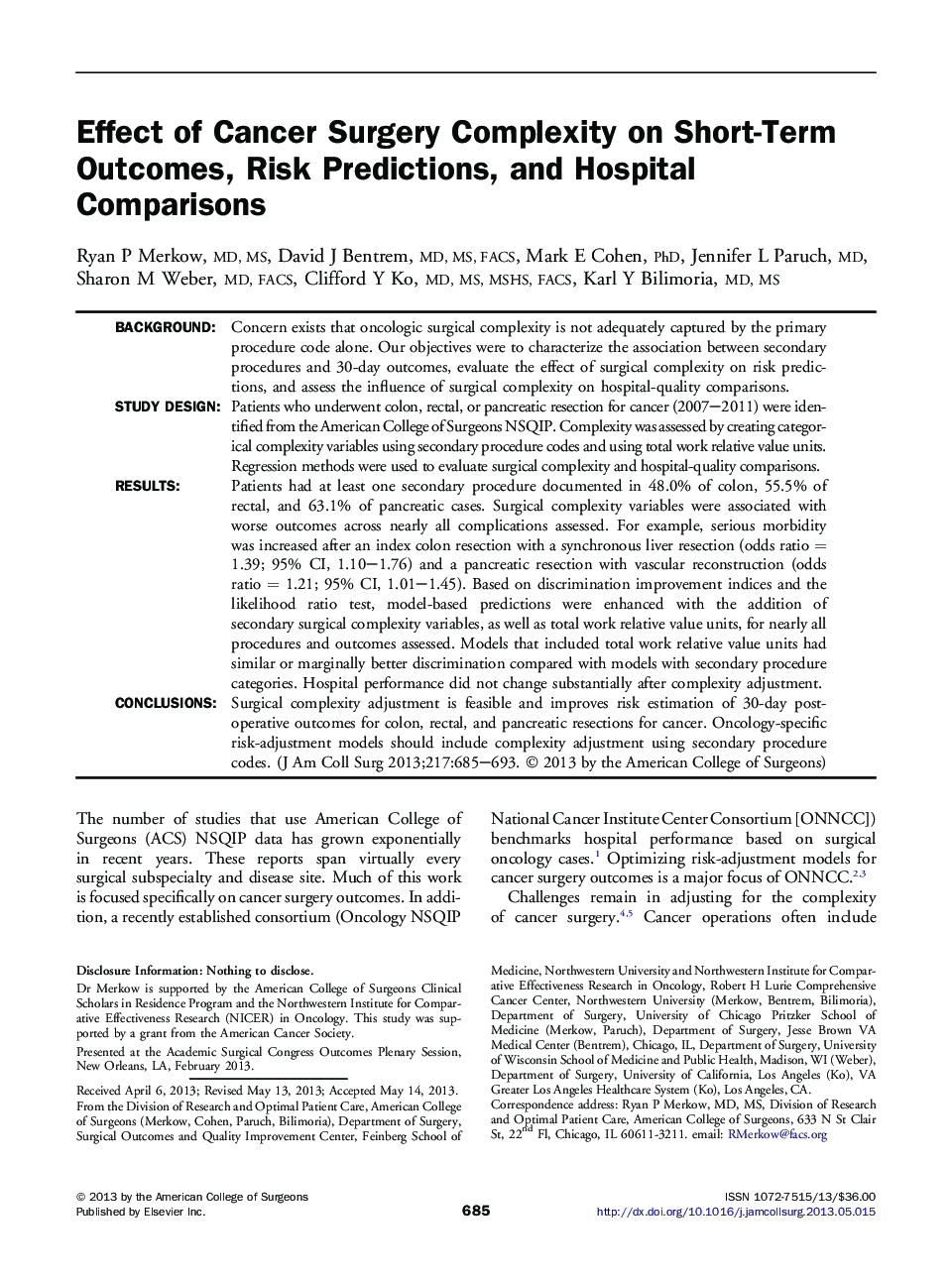| کد مقاله | کد نشریه | سال انتشار | مقاله انگلیسی | نسخه تمام متن |
|---|---|---|---|---|
| 4291871 | 1612241 | 2013 | 9 صفحه PDF | دانلود رایگان |

BackgroundConcern exists that oncologic surgical complexity is not adequately captured by the primary procedure code alone. Our objectives were to characterize the association between secondary procedures and 30-day outcomes, evaluate the effect of surgical complexity on risk predictions, and assess the influence of surgical complexity on hospital-quality comparisons.Study DesignPatients who underwent colon, rectal, or pancreatic resection for cancer (2007–2011) were identified from the American College of Surgeons NSQIP. Complexity was assessed by creating categorical complexity variables using secondary procedure codes and using total work relative value units. Regression methods were used to evaluate surgical complexity and hospital-quality comparisons.ResultsPatients had at least one secondary procedure documented in 48.0% of colon, 55.5% of rectal, and 63.1% of pancreatic cases. Surgical complexity variables were associated with worse outcomes across nearly all complications assessed. For example, serious morbidity was increased after an index colon resection with a synchronous liver resection (odds ratio = 1.39; 95% CI, 1.10–1.76) and a pancreatic resection with vascular reconstruction (odds ratio = 1.21; 95% CI, 1.01–1.45). Based on discrimination improvement indices and the likelihood ratio test, model-based predictions were enhanced with the addition of secondary surgical complexity variables, as well as total work relative value units, for nearly all procedures and outcomes assessed. Models that included total work relative value units had similar or marginally better discrimination compared with models with secondary procedure categories. Hospital performance did not change substantially after complexity adjustment.ConclusionsSurgical complexity adjustment is feasible and improves risk estimation of 30-day postoperative outcomes for colon, rectal, and pancreatic resections for cancer. Oncology-specific risk-adjustment models should include complexity adjustment using secondary procedure codes.
Journal: Journal of the American College of Surgeons - Volume 217, Issue 4, October 2013, Pages 685–693